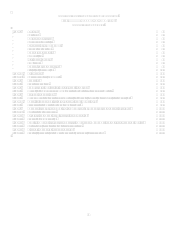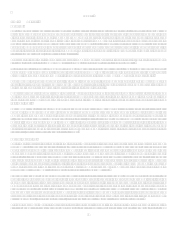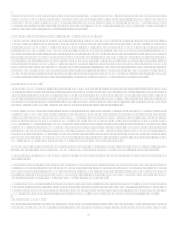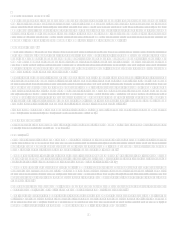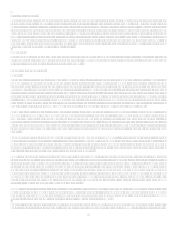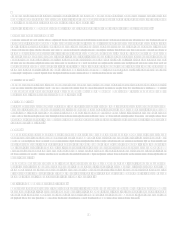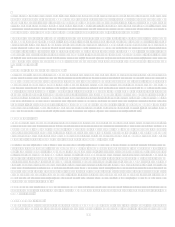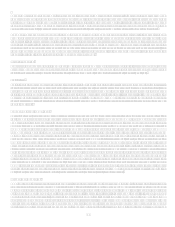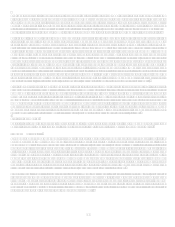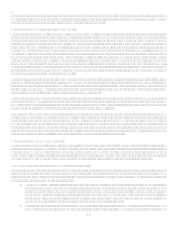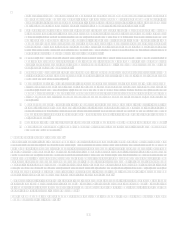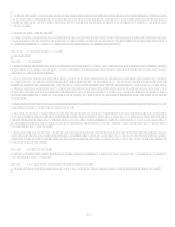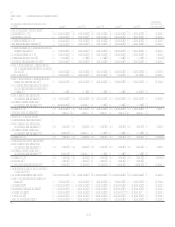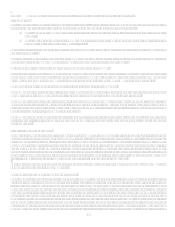Capital One 2007 Annual Report Download - page 34
Download and view the complete annual report
Please find page 34 of the 2007 Capital One annual report below. You can navigate through the pages in the report by either clicking on the pages listed below, or by using the keyword search tool below to find specific information within the annual report.12
mechanisms for the U.S. government, including due diligence requirements for financial institutions to detect and report money
laundering through private banking and correspondent accounts; standards for verifying customer identification at account opening;
rules to promote cooperation among financial institutions, regulators, and law enforcement entities in identifying parties that may be
involved in terrorism or money laundering; reporting requirements applicable to the receipt of coins and currency of more than
$10,000 in nonfinancial trades or businesses; and suspicious activities reporting requirements applicable to brokers and dealers.
The Department of Treasury in consultation with the Federal Reserve and other federal financial institution regulators has
promulgated rules and regulations implementing the Patriot Act that prohibit correspondent accounts for foreign shell banks at U.S.
financial institutions; require financial institutions to maintain certain records relating to correspondent accounts for foreign banks;
require financial institutions to produce certain records relating to anti-money laundering compliance upon request of the appropriate
federal banking agency; require due diligence with respect to private banking and correspondent banking accounts; facilitate
information sharing between government and financial institutions; require verification of customer identification; and require
financial institutions to have in place an anti-money laundering program.
Interstate Taxation
Several states have passed legislation which attempts to tax the income from interstate financial activities, including credit cards,
derived from accounts held by local state residents. Based on the volume of our business in these states and the nature of the
legislation passed to date, we currently believe that this development will not materially affect our financial condition.
Legislation
Legislation has been proposed that could significantly restrict mortgage lending; other legislation has been proposed that could restrict
the practice of charging convenience overdraft fees on deposit accounts. Several hearings have been held in Congress on credit card
practices which could lead to legislation restricting credit card practices or mandating additional disclosures. Yet other pending
legislation could expand the privacy protections afforded to customers of financial institutions. It is unclear at this time whether and in
what form any legislation will be adopted or, if adopted, what its impact on COB, CONA, or the Corporation would be. Congress or
individual states may in the future consider other legislation that would materially and/or adversely affect the banking or consumer
lending industries.
Sarbanes-Oxley Act Compliance
On July 30, 2002, the Sarbanes-Oxley Act of 2002 (the Sarbanes-Oxley Act) was passed into law. The Sarbanes-Oxley Act applies
to all companies that are required to file periodic reports with the Securities and Exchange Commission (SEC) and contains a
number of significant changes relating to the responsibilities of directors and officers and reporting and governance obligations of
SEC reporting companies. In addition, the Sarbanes-Oxley Act also created the Public Company Accounting Oversight Board (the
PCAOB), a private sector, non-profit corporation whose mission is to oversee the auditors of public companies. The PCAOB
recommends rulemaking to the SEC and sets certain standards for the auditors which it oversees. Since the passage of the Sarbanes-
Oxley Act, we have taken a variety of steps that we believe place us in substantial compliance with the effective provisions of the
Sarbanes-Oxley Act. We continue to monitor SEC rulemaking and PCAOB activities to determine if additional changes are needed to
comply with provisions that may become effective in the future. Furthermore, our management has supervised the design of, or has
designed, internal controls and procedures to provide reasonable assurances regarding the reliability of its financial reporting and
disclosure controls and procedures to ensure that material information regarding the Company is made known to them, particularly
during the period in which this Annual Report on Form 10-K is being prepared and has evaluated the effectiveness of those controls as
more fully set forth in Controls and Procedures below. We have, in compliance with Section 404 of the Sarbanes-Oxley Act,
certified, in connection with this Annual Report on Form 10-K, that we did not discover, during the execution of our internal control
processes, any material weaknesses. In addition, our management policy is to disclose to our auditors and the Audit and Risk
Committee of the Board of Directors significant deficiencies, if any, in the design or operation of our internal control over financial
reporting that are reasonably likely to adversely affect our ability to record, process, summarize and report financial information, as
well as any fraud, whether or not material, by those that have a significant role in these processes.
International Regulation
COB faces regulation in foreign jurisdictions where it currently operates. Those regulations may be similar to or substantially different
from the regulatory requirements COB faces in the United States. In the United Kingdom, COB operates through the U.K. Bank,
which was established in 2000. The U.K. Bank is regulated by the Financial Services Authority (FSA) and licensed by the Office of
Fair Trading (OFT). The U.K. Bank is an authorized deposit taker and thus is able to take consumer deposits in the U.K. The U.K.
Bank also has been granted a full license by the OFT to issue consumer credit under the U.K.s Consumer Credit Act1974. The FSA
requires the U.K. Bank to maintain certain regulatory capital ratios at all times, and it may modify those requirements at any time.
Effective January 1, 2008, the U.K. Bank has become subject to new capital adequacy requirements implemented by the FSA as a
result of the U.K.s adoption of the European Capital Requirements Directive, itself an implementation of the Basel II Accord. The


